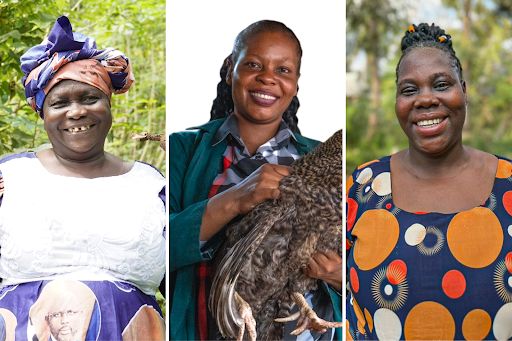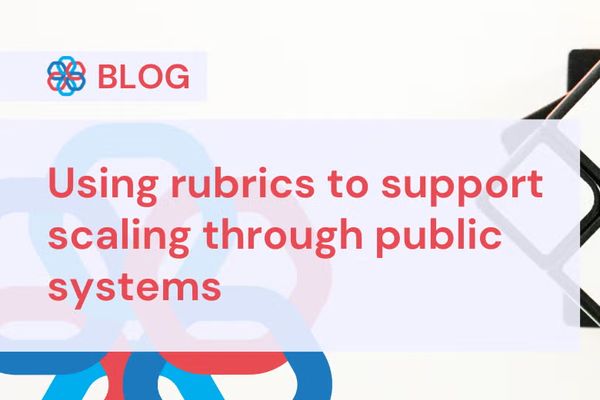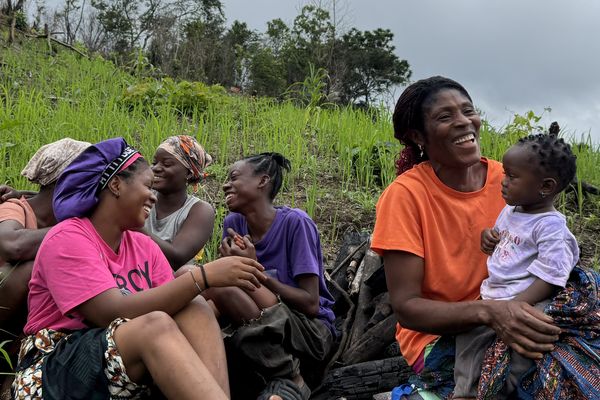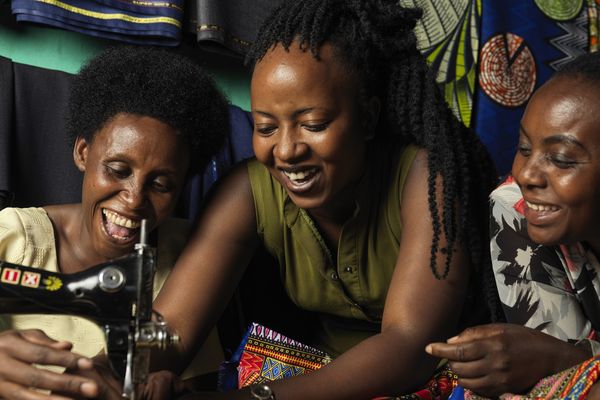The hustle, the grit, the triumph
Jojina’s story begins with a handful of ingredients—flour, oil, and baking powder. But in her hands, they became more than just mandazi (a popular East African fried dough snack); they were transformed into the stepping stones to a future she once thought was out of reach. Her small business not only put food on the table but also put her children through school. Today, her son, Aviti, holds a vocational certificate in electrical engineering. "My life is better because I had the opportunity to build something of my own," she says.
Despite their significant contributions to the world economy, women account for more than half of the 1.4 billion unbanked adults globally. Limited access to credit, financial and digital literacy, and deeply ingrained social norms create significant barriers to achieve their economic potential. The challenges are even greater for women living in rural and hard-to-reach areas.
Numerous studies show that when women have financial control, they reinvest in their families and communities—strengthening education, healthcare, and economic resilience. Women’s economic empowerment is central to improving their status in society, realising their rights, and achieving gender equality.
Teopista, in Uganda, knows this firsthand. When her poultry farm was struggling, she and her husband turned to microfinance. With the right support, they rebuilt their business, and today, it employs over 50 people. Meanwhile, Fatu, in Liberia, turned her small farm into a thriving business and now dreams of exporting her produce internationally, proving that when women get the right opportunities, they transform their lives, creating limitless possibilities.
Financial inclusion is not only about transactions, it’s about transformation.”
At BRAC, microfinance is about providing opportunities that empower women to build sustainable futures. Through tailored loans and savings products that meet clients’ needs, financial and digital literacy training, and access to digital financial services, women can strengthen their livelihoods, achieve financial independence, and create lasting change in their communities.
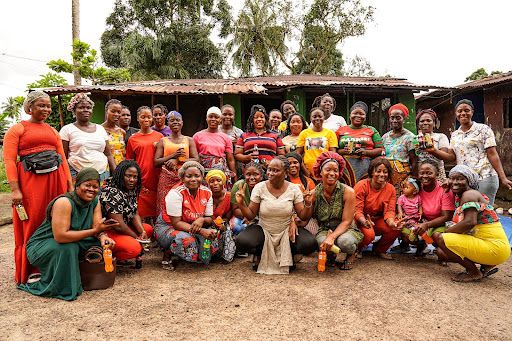
A BRAC microfinance group in Liberia: Photo taken by Tahjib Shamsuddin
A recent study from the Gates Foundation shows that despite their vital roles in rural entrepreneurship and driving local economies, women remain disproportionately excluded from financial services compared to men. Globally, there’s a US$1.7 trillion gap between the amount of capital women want and the amount they get. By closing that gap, we can add as much as US$6 trillion to global GDP.
This reinforces the urgency of scaling up financial inclusion efforts for women. Bridging this gap isn’t just about equity—it’s a catalyst for economic growth and poverty reduction across nations and the globe.
Banking on women means banking on the future
Jojina, Teopista, and Fatu’s stories are more than individual victories—they are proof that when women have control over their finances, they transform families, communities, and entire economies. This is not just about money; it’s about agency, dignity, and rewriting the future on their own terms.
This International Women’s Day, the message is clear - we must accelerate action. Women are not just part of the future - they ARE the future. The time for slow progress is over. The time for excuses is over. Women are the key to a stronger and a more just world - and accelerating action isn’t an option; it’s a necessity. So, will you stand by, or will you stand with them?
Written by Michelle Wandia, Deputy Communications Manager, BRAC International Microfinance
Header image - from the left: Fatu, Teopista and Jojina.
Photos taken by Tahjib Shamsuddin and Michelle Wandia
